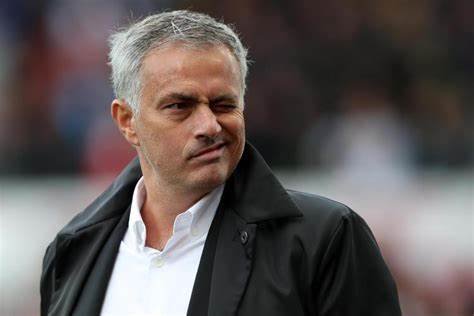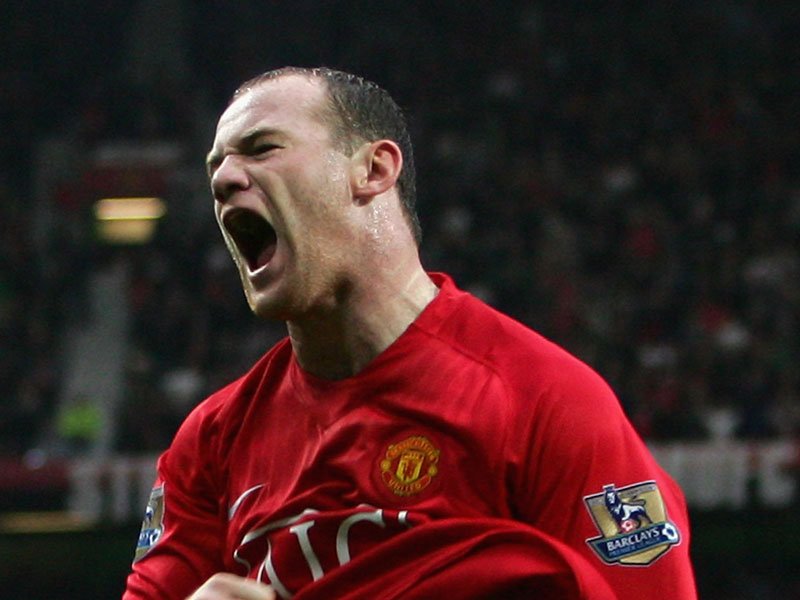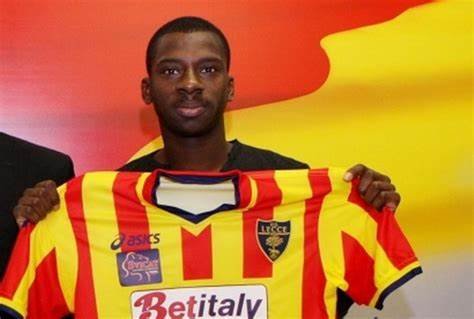Jose Mourinho, a name synonymous with tactical brilliance, passion, and controversy, has made an indelible mark on the world of football. From his early days as a translator to becoming one of the most successful and recognizable football managers, Mourinho’s journey is one of relentless ambition, unwavering confidence, and a unique approach to the game. His philosophy, which blends psychological insight with meticulous tactical preparation, has led him to become one of the most decorated managers in the history of football. In this article, we will explore his career, his impact on football, his controversies, and his legacy in the world of sport.
Early Life and Career
Jose Mourinho was born on January 26, 1963, in Setúbal, Portugal, to a family that had a deep connection with football. His father, Félix Mourinho, was a professional footballer who later became a coach. Growing up in a football-oriented environment, Mourinho’s passion for the game developed at a young age. Initially, he pursued a career as a player, but his potential was limited due to physical constraints. It was during this time that he realized his true calling was to be a football manager.
Mourinho’s early coaching career began in Portugal, where he worked as a translator for the legendary coach Sir Bobby Robson at Sporting CP and later at FC Barcelona. During his time at Barcelona, Mourinho soaked up invaluable insights into football management and began forming his own ideas about the game. This period was crucial in shaping his managerial philosophy, particularly his emphasis on tactical discipline and psychological preparation.
Breakthrough as a Manager
Mourinho’s breakthrough came in 2000 when he became the head coach of Portuguese club Benfica. His stint at Benfica was short-lived, but it gave him the opportunity to showcase his managerial abilities. His big break came in 2002 when he was appointed as the manager of FC Porto, one of Portugal’s top clubs.
At Porto, Mourinho quickly established himself as a manager with a winning mentality. In his first season, he led the team to a Primeira Liga title and followed it up with a remarkable achievement by winning the 2003 UEFA Cup, defeating Celtic in the final. However, it was his performance in the 2004 UEFA Champions League that truly put him on the map. Porto defeated AS Monaco 3-0 in the final, and Mourinho’s stock as a top manager skyrocketed.
Move to Chelsea: A New Era in the Premier League
In 2004, Mourinho made a high-profile move to Chelsea FC in the English Premier League. His arrival in England was nothing short of revolutionary, as he brought a new sense of professionalism, discipline, and tactical rigor to the club. Mourinho quickly made an impact, leading Chelsea to the Premier League title in his first season in charge, a feat that had eluded the club for 50 years.
Mourinho’s Chelsea team was characterized by a solid defensive structure, physicality, and a relentless winning mentality. He built his team around a core of experienced players like John Terry, Frank Lampard, and Didier Drogba. His tactical approach was often described as pragmatic, focusing on solid defense and quick counter-attacks. Under his guidance, Chelsea became a dominant force in English football, securing multiple league titles and domestic cups.
Success in Italy: Inter Milan Triumphs
After a successful spell at Chelsea, Mourinho moved to Italy in 2008 to manage Inter Milan. His time at Inter was marked by a series of triumphs, both domestically and internationally. The pinnacle of his career at Inter came in 2010 when he led the club to an unprecedented treble, winning Serie A, the Coppa Italia, and the UEFA Champions League in the same season. This achievement cemented Mourinho’s reputation as one of the best managers in the world.
Mourinho’s success at Inter was built on his ability to adapt his tactics to the strengths of his team. At Inter, he employed a highly disciplined 4-2-3-1 formation that allowed his players to control the tempo of the game and exploit the opposition’s weaknesses. His tactical awareness and ability to inspire his players were crucial to Inter’s success.
Real Madrid: A Fierce Rivalry with Barcelona
In 2010, Mourinho took over at Real Madrid, one of the most prestigious clubs in the world. His time at Madrid was marked by a fierce rivalry with Barcelona, managed by Pep Guardiola. The two managers’ contrasting styles created one of the most intense managerial rivalries in modern football.
During his time at Madrid, Mourinho won the Copa del Rey, the La Liga title, and guided the club to the semi-finals of the UEFA Champions League on multiple occasions. However, despite his success, his relationship with the media and some players was often strained, with Mourinho’s confrontational style sometimes overshadowing his team’s on-field accomplishments. Nevertheless, his time at Madrid was significant for breaking Barcelona’s dominance in Spanish football and achieving success in a highly competitive league.
Return to Chelsea and Later Stints
In 2013, Mourinho returned to Chelsea for a second spell at the club. Despite facing some challenges, he managed to bring Chelsea back to the top of English football, winning the Premier League in 2015. However, his second stint at Chelsea ended abruptly in 2015 after a series of poor results, leading to his dismissal.
Mourinho’s career didn’t end there, as he went on to manage Manchester United in 2016. At United, he achieved success by winning the UEFA Europa League, the League Cup, and the Community Shield. However, his time at United was marred by internal conflicts, and he was dismissed in 2018 after a string of underwhelming performances.
After a brief hiatus, Mourinho took over as manager of Tottenham Hotspur in 2019. His tenure at Spurs was short-lived, and he was dismissed in 2021 after a series of disappointing results. Nevertheless, Mourinho’s ability to adapt his tactical approach and his hunger for success continued to define his career.
Tactical Philosophy: The Special One’s Approach
Mourinho’s tactical philosophy has always been one of meticulous preparation, psychological mastery, and tactical flexibility. His focus on defensive organization and discipline is evident in all of his teams, as he believes that a solid defense is the foundation of success. Mourinho is also known for his counter-attacking football, utilizing pace on the wings and exploiting the opposition’s vulnerabilities.
One of Mourinho’s key strengths is his ability to motivate players and create a winning mentality. He often takes on the role of the “Special One,” adopting a confrontational and charismatic style that inspires his players to give their best. His confidence and self-assuredness have sometimes led to controversies, but they have also contributed to his success.
The Controversies and Criticisms
Mourinho’s career has been as controversial as it has been successful. His outspoken personality and tendency to engage in mind games with rival managers, players, and the media have earned him both admiration and criticism. At times, his fiery nature has led to public spats with players, such as his infamous fallout with Real Madrid star Cristiano Ronaldo.
Mourinho’s tactical approach, though effective, has often been criticized for being overly defensive and lacking in flair. His pragmatic style of play, especially during his time at Chelsea and Inter Milan, has drawn criticism from some football purists who prefer a more attacking style of football. However, Mourinho’s critics have often underestimated his ability to deliver results, and his success cannot be overlooked.
Legacy: One of Football’s Greatest Managers
Jose Mourinho’s legacy in football is undeniable. He is regarded as one of the greatest managers of his generation, having won league titles, domestic cups, and the prestigious UEFA Champions League with multiple clubs. His tactical acumen, ability to manage big egos, and relentless pursuit of success have set him apart from many of his peers.
Mourinho has influenced a generation of football managers who have adopted aspects of his tactical philosophy and psychological approach. His emphasis on mental toughness, defensive organization, and tactical flexibility has become a blueprint for success in modern football.
Final Thought
Jose Mourinho’s career is a testament to the power of self-belief, tactical intelligence, and a relentless desire to win. His impact on football has been profound, both in terms of his achievements and the way he has reshaped managerial approaches in the modern game. Whether you love him or hate him, there is no denying that Mourinho has left an indelible mark on the footballing world. His legacy will continue to inspire future generations of managers and players, ensuring that his influence endures long after his managerial career comes to an end.
FAQs
Who is Jose Mourinho?
Jose Mourinho is a renowned Portuguese football manager and former player. Widely regarded as one of the most successful and charismatic managers in football history, he has coached top clubs such as Chelsea, Real Madrid, Manchester United, and AS Roma. Known for his tactical acumen and controversial personality, Mourinho has won numerous league titles, domestic cups, and European trophies, cementing his legacy as one of football’s greatest managers.
What is Jose Mourinho’s coaching style?
Mourinho is known for his pragmatic and defensive approach to the game. His teams are typically well-organized defensively, with a focus on counter-attacking football. Although often criticized for a perceived lack of attacking flair, Mourinho’s teams are tough to break down and often grind out results, especially in high-pressure situations. His ability to adapt tactics to suit the strengths and weaknesses of his team is a key hallmark of his coaching style.
How many trophies has Jose Mourinho won?
Jose Mourinho has won a staggering number of trophies during his career, including multiple league titles in Portugal, England, Italy, and Spain. Notably, he won two UEFA Champions League titles – one with FC Porto (2004) and another with Inter Milan (2010). He has also claimed numerous domestic cups and league championships, making him one of the most decorated managers of his generation.
What makes Jose Mourinho a special manager?
Mourinho is known for his leadership skills, intense media presence, and strategic planning. His ability to motivate players, manage egos, and build cohesive teams has earned him the respect of his peers and players alike. Mourinho’s tactical flexibility and mastery of mind games with rivals have made him an intriguing figure in the world of football.
What is Jose Mourinho’s current club?
As of the 2024 season, Jose Mourinho is managing AS Roma in Italy’s Serie A. He took over the club in 2021 and led them to their first-ever UEFA Europa Conference League victory. His tenure at Roma has been marked by a strong defensive structure and steady improvement, with his sights set on more trophies.
To read more; Click here



